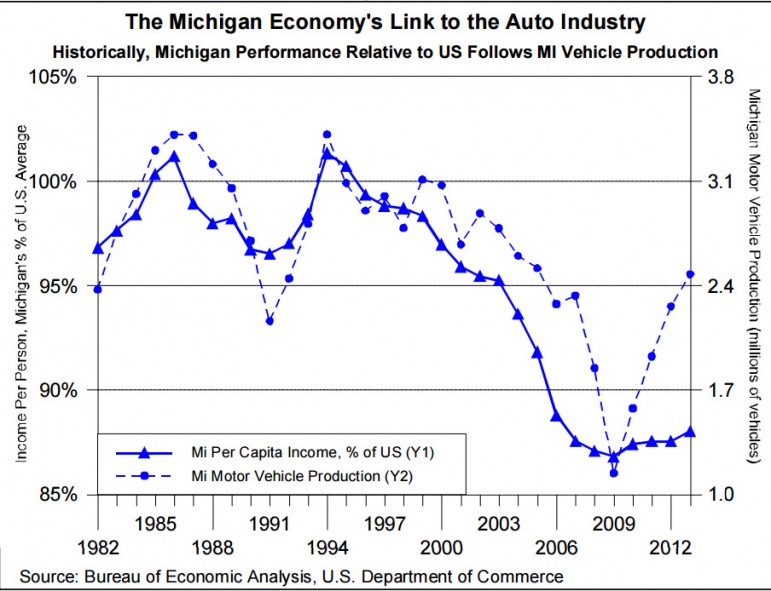For most of the 20th Century Michigan was one of the nation’s most prosperous states. Largely because the auto industry employed hundreds of thousands at high wages. Anchored by blue collar factory workers. Michigan’s prosperity was highly correlated with how well the domestic auto industry––now the Detroit Three––was faring. When the Detroit Three did well, so did Michigan. When they struggled, so did the state.
Neither are true today. Michigan is now one of the nation’s poorest states. Falling from 18th in per capita income in 2000 to 37th in 2013. And we no longer are prosperous when the Detroit Three are doing well. Its a lesson we seem not to have learned.
The disconnect between the fortunes of the Detroit Three and Michiganders well being is clearly demonstrated in the chart below from the Senate Fiscal Agency from their March, 2015 State Budget Overview
As the chart makes clear from 1982 (and decades before) through the depths of the Great Recession Michigan’s prosperity was highly correlated with Detroit Three motor vehicle production. But not since the end of the Great Recession. Detroit Three motor vehicle production has about doubled from the near collapse of the domestic auto industry and yet per capita income compared to the country has stayed about the same. Michigan fell to 38th in per capita income, and maybe more importantly, to 42nd in per capita income without government transfer payments in 2009. But it has only rebounded to 37th in per capita income and 41st in per capita income without government transfer payments in 2013.
Why has the correlation ended between the Detroit Three and Michigan prosperity? Largely because the auto industry needs far fewer production workers than in the past (production/assembly is now highly automated) and, the jobs that remain are lower paying. Manufacturing in general, and in the auto industry more specifically, is no longer the mass employer it was during the 20th Century nor does it provide the high paid work it once did. You can’t build a mass middle class in the 21st Century in a factory-based economy. End of story!






